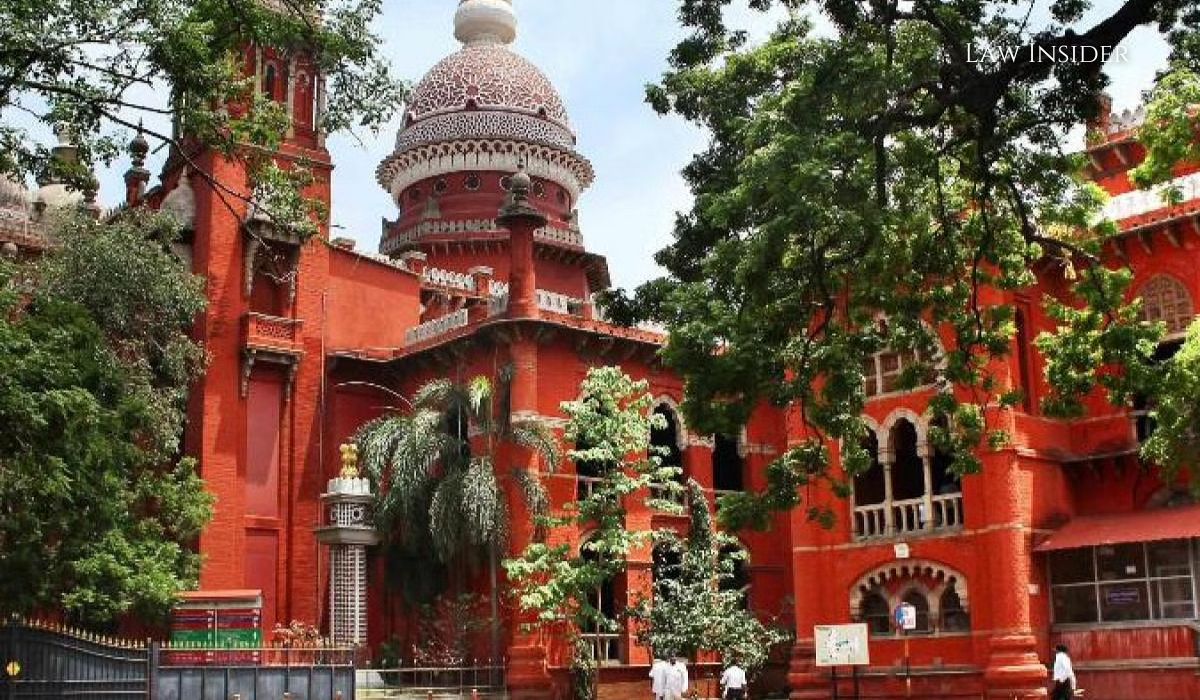LI Network
Published on: 05 September 2023 at 22:24 IST
In a recent decision, the Madras High Court has granted default bail while overturning an extension of remand order issued under Section 43D of the Unlawful Activities (Prevention) Act, 1967 (UAPA).
The court emphasized that the trial court should not entertain extension applications without the accused being produced before it.
The bench consisting of Justice M Sundar and Justice R Sakthivel relied on a precedent set by the Supreme Court in Sanjay Dutt’s case, which was reiterated in Judgebir Singh v NIA.
These cases established that the accused need not demonstrate prejudice if not produced when an extension petition was considered.
The court was addressing a plea filed by Mohammed Hasan Kuthous and two others, who were arrested by the National Investigation Agency (NIA) for posting content on social media that allegedly promoted enmity among different religious groups.
The accused were charged with offenses under IPC Sections 153-A, 120-B, 505(1)(c), and 505(2) for promoting enmity, criminal conspiracy, and statements causing public mischief. Additionally, an FIR was filed under Section 13(1)(b) of UAPA for inciting unlawful activity.
The accused were arrested on the same day and remanded to judicial custody the following day. They approached the High Court to challenge the trial court’s decision to extend their remand and deny bail.
The defense argued that the reasons provided in the Public Prosecutor’s report for detention beyond 90 days were insufficient to justify the application’s approval. They also contended that detention should not be authorized without producing the accused.
On the other hand, the Public Prosecutor asserted that the specified reasons for continued detention were valid. Citing the Supreme Court’s decision in Qamar Ghani Usmani Vs. The State of Gujarat, the Prosecutor stated that the accused had been notified, and when the accused did not exercise their right to seek statutory bail before the charge sheet was filed, they could only seek regular bail.
The court, however, relied on the Judgebir decision, which was rendered after Qamar Ghani. In this judgment, the Supreme Court remarked that if the accused had filed a bail application while the extension application was pending, the court would have had no choice but to grant statutory bail.
The court also noted that the Supreme Court, in the Judgebir case, reiterated the principles established in the Sanjay Dutt case, emphasizing the necessity of producing the accused at the court during the consideration of an extension of the investigation period, even if a formal written notice with reasons is not provided.
The court further observed that the trial court had denied bail primarily on the grounds that the extension application was filed before the expiration of 90 days, while the default bail plea was submitted on the 91st day.
The court found this reasoning flawed, as the default bail plea could only be exercised on the 91st day.
Additionally, the court highlighted that the prosecution had submitted specific reasons for requesting an extension of remand but had filed the charge sheet just two days later.
Consequently, the court agreed with the defense’s argument that the extension request was made solely to prolong the incarceration of the accused.
As a result, the court granted default bail to the accused while noting that both of the trial court’s orders needed to be overturned.

